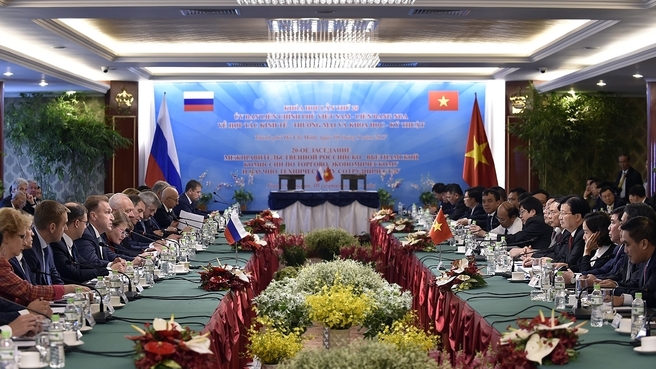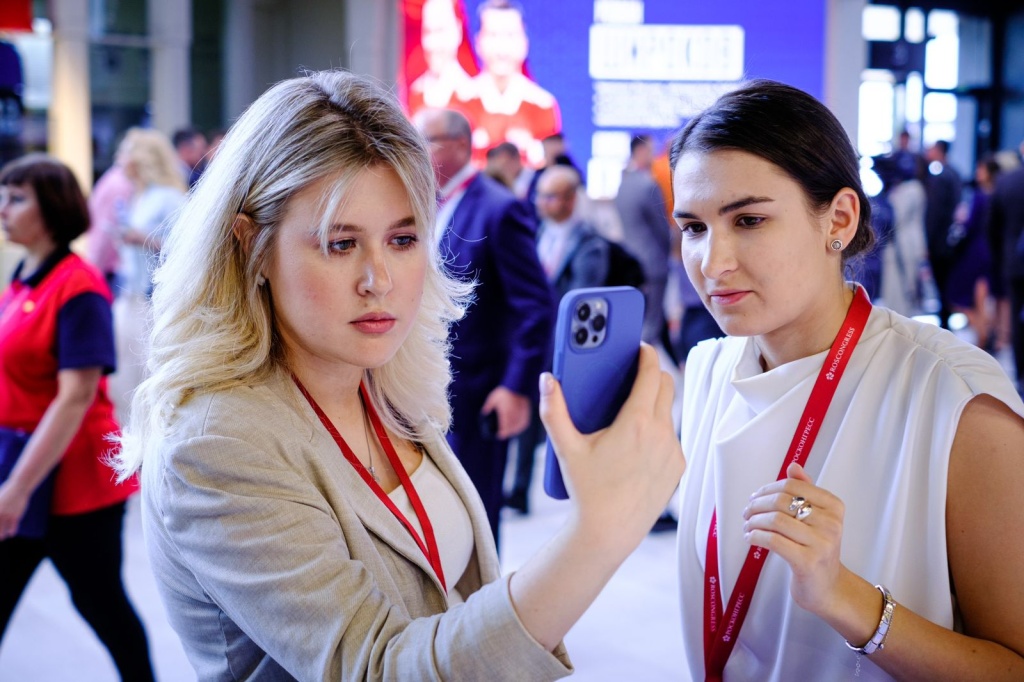
Shuvalov invites representatives of Vietnamese government and business to SPIEF and EEF in 2018
The Intergovernmental Russian-Vietnamese Commission for Trade, Economic, Scientific, and Technical Cooperation held its 20th session in Ho Chi Minh City, Vietnam. The co-chairs of the commission, Russian First Deputy Prime Minister Igor Shuvalov and Vietnamese Deputy Prime Minister Trinh Dinh Dung, discussed key aspects of Russian-Vietnamese cooperation in detail.
Since October 2016, Vietnam and the Eurasian Economic Union have had a free trade agreement that has positively affected the trade dynamics between countries. Russian-Vietnamese trade increased by almost 21% in the first half of 2017 to more than USD 2 billion.
“Today we agreed on a specific work plan in order to bring real content to free trade between our countries. We agreed on specific working mechanisms to significantly increase the exchange of goods in coming years”, Shuvalov said after the meeting.
The parties noted a significant increase in agricultural trade. Agricultural exports from Russia increased by more than ten-fold over the specified period. In addition, the intergovernmental commission participants continued a mutually beneficial dialogue to ensure the access of agricultural products to the markets of both countries. The negotiations concluded with the coordination of forms of certificates that will make it possible to export products to Vietnam from Russia. The Russian Ministry of Agriculture and the Vietnamese Ministry of Agriculture and Agrarian Development signed an agreement on cooperation in product safety and veterinary control over the import/export of animal products and raw materials during the meeting.
During the plenary session, the intergovernmental commission participants also discussed new areas of Russian-Vietnamese trade, economic, and investment cooperation and adopted a plan for cooperation until 2020.
In addition, the parties considered issues concerning the development of Russian-Vietnamese relations in science and personnel training. There are currently more than 3,300 Vietnamese citizens studying in Russia. The parties confirmed their intention to systematically increase the quotas of students. “Essentially, cooperation in education and science as well as youth exchanges are what lay the foundation for modernizing our economies and handing the baton to future generations so that they remember about Russian-Vietnamese friendship”, Shuvalov said.
The commission members also noted the great prospects for industrial cooperation during the negotiations. The free trade zone agreement offers the opportunity to jointly manufacture cars using Russian components in Vietnam. Shuvalov and Dung confirmed their intention to work consistently on setting up the semi knocked down assembly of leading Russian motor vehicles brands in Vietnam as part of an intergovernmental protocol on supporting car manufacturing in Vietnam dated 21 March 2016.
Important objectives discussed by the commission co-chairs include holding the Year of Russia in Vietnam and the Year of Vietnam in Russia in 2019. They noted that a wide range of activities to intensify cooperation in trade and economics, science and education as well as culture and tourism will promote the development of relations between the two countries.
“The range of our cooperation tools is huge and we must use them more actively. To this end, we agreed on a more active mechanism for cooperation in the coming year so that all concerned parties, including the Government, truly demonstrate the policies announced by the leaders of Vietnam and Russia in deeds and not just in words and produce a concrete result”, Shuvalov said.
Shuvalov thanked the Vietnamese side for its active cooperation, invited the intergovernmental commission to Russia for the 21st meeting, and also extended an invitation to take part in the fourth Eastern Economic Forum in Vladivostok and the St. Petersburg International Economic Forum on 24–26 May 2018.
Source: http://government.ru








